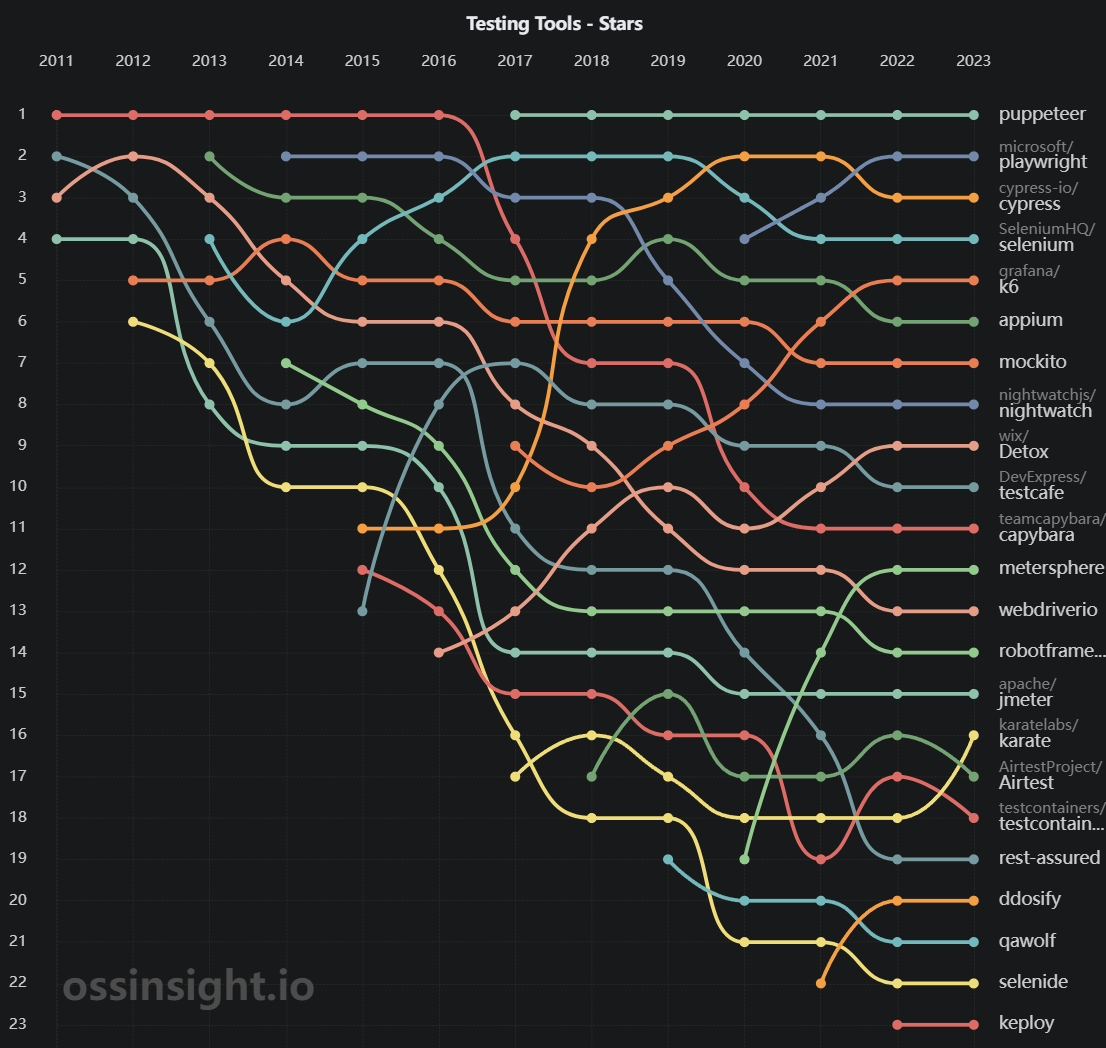Testing is an important part of software development that helps ensure the quality and reliability of the product. One way to facilitate the testing process is by using open-source tools. Currently, there is a wide range of popular open-source testing tools available on the market that can assist in the development of high-quality software.
Popular open-source testing tools
- 22.08.2023
- Posted by: Admin

Playwright
According to the data from OSS Insight, one of the most popular open-source testing tools is Playwright by Microsoft. It is an application that allows automation of web application testing using languages such as TypeScript, JavaScript, Python, .NET, and Java. Playwright serves as an alternative to another popular tool, Selenium, providing a convenient interface for web application testing and supporting languages like Java, Python, C#, Ruby, JavaScript, and Kotlin. However, it is worth noting that Playwright is considered more convenient, faster, and stable compared to Selenium, which has positioned it as a leading tool among similar products.
Puppeteer
The second most popular tool is Puppeteer, developed by the same team as Playwright, but specifically for working with browsers on Chrome or Chromium. Puppeteer offers a wide range of capabilities for automated testing in the Chrome/Chromium environment.
Cypress
Another popular tool is Cypress, which holds the fourth position in the chart. It is a powerful alternative to Selenium, operating within the same execution cycle as the tested program and using JavaScript for test scripting. While it has somewhat limited integration compared to Selenium (especially regarding mobile testing), Cypress excels in terms of speed, ease of use, and accessibility for non-technical specialists.
Ddosify
Ddosify is another popular tool, serving as a comprehensive performance testing platform with geographical targeting. It is specifically designed for evaluating server-side load and delay, supporting such protocols as HTTP, HTTPS, HTTP/2, and various types of loads. Its robust functionality has positioned it among the most popular tools in its niche.
k6
Similar popular tools such as k6 by Grafana, MeterSphere, and jMeter are used for performance testing of web applications, allowing comprehensive testing with a large number of concurrent users. Currently, k6 stands out as one of the most popular among these tools, offering flexibility in defining performance testing scenarios and detailed reporting for comprehensive testing analysis.
MeterSphere
MeterSphere, on the other hand, is a popular all-in-one platform known for enterprise-class continuous testing. It covers functions such as test tracking, interface testing, performance testing, and team collaboration. It is compatible with open-source standards like JMeter.
jMeter
While JMeter has been a long-standing leader in its niche, today it faces competition from improved and more adapted alternatives like k6 or MeterSphere, which confidently hold leading positions among performance testing and other related tools.
Appium
Other popular open-source testing tools include Appium (for testing various types of applications, primarily mobile ones), Mockito (for unit testing in Java), Airtest (for automated testing of game and application interfaces), Robot Framework (for automated testing), Cucumber (for behavior-driven testing), and many others.
As depicted in the chart below, the popularity of certain open-source testing tools varies over time. Older tools may give way to newer solutions that are more convenient and cater to the needs of the modern market.
Overall, the increasing popularity of open-source testing tools is likely due to their flexibility, reliability, and cost-effectiveness compared to proprietary solutions. As software development becomes more complex, these tools will continue to play a crucial role in ensuring the quality of software products.



